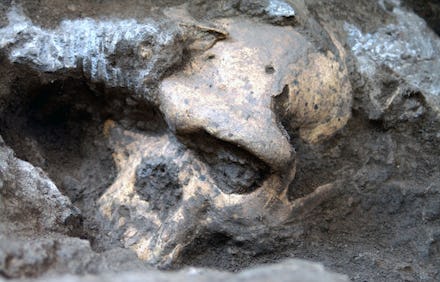Skull 5 May Hold the Keys to Understanding Human Evolution

A 1.8-million-year-old fossilized skull found in the Republic of Georgia suggests that the beginning saga of man was not as complex as we previously believed it to be. Skull 5 (a title that makes one wonder what tragedy befell his four predecessors), this almost 2-million-year-old fossil is the "first completely preserved adult hominid fossil," according to Dr. David Lordkipanidze's international team of scientists heading up an eight year study. In addition to the rarity of the find, Skull 5 consisted of a number of various features thought to be distinct amongst the various homo species. Fossils from four other hominids were discovered with Skull 5 at the site in Dmanisi, Georgia in 2005 as well.
The collection of fossils allowed the research team to conclude that the variations between fossils were no more pronounced than variations that would be seen between you and I, though I tend to tell myself my head is no longer as big as people told me it was in middle school. Another scientist on the international team, Dr. Zollikofer, stated the Dmanisi fossils were similar enough to hominid fossils found in Africa that it would be safe to "assume that they both represent the same species." At first glance, this may not seem like a major discovery for current homo-sapiens; it doesn't seem to be a find on par with Lucy.
But Skull 5 has challenged the prevailing notion that human evolution from our chimpanzee brethren was a long process of trial and error producing various hominid species until one finally stuck: modern man, which migrated out of Africa onto the Eurasian continent to eventually find themselves discovering the wonders of spaceflight and the deliciousness of a crisp, toasted potato wedge. Instead, Skull 5 shows to us that some of the previous iterations of our ancestors were actually just one homo species that we can trace our ancestry to.
And this ancestor, despite lacking the ability to form complex language, before it could read and write, before it could understand that the earth it walked on was round, had a desire to explore the world and make a better life for itself. It had a desire to discover what had not yet been discovered, a desire to cross oceans not knowing what lay on the other side, a desire so powerful that it passed it on to us.